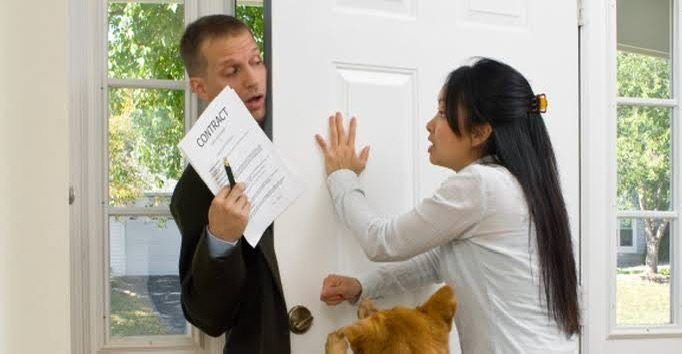Consumers have a number of rights of termination in relation to unsolicited consumer agreements (arising from telemarketed sales, or door to door sales).
An unsolicited consumer agreement is generally (with a number of exceptions) an agreement:
For the supply of products or services to a consumer;
Where the supplier or salesperson approaches the consumer without the consumer’s invitation;
The negotiations for which take place over the telephone, or in person at a location other than the supplier’s premises.
The concept is for an unsolicited agreement to be one where the direct contact is initiated by the seller. If the contact is initiated by the customer (eg by the customer responding to an advertisement or web page, phoning the business, or going to the showroom premises) then usually the resulting agreement would not be unsolicited. A critical aspect of this is that the consumer not “invited” the contact from the supplier.
Sometimes suppliers contend that an agreement is not an unsolicited consumer agreement (as a result of which there are no cooling off rights) because they say that their contact was at the invitation of the consumer. This invitation might be artificially engineered in situations such as the following:
A door to door salesperson attends a home uninvited and asks the home owner if they are interested in saving money by installing a solar PV system. When the home owner says yes, the salesperson says that he has to meet a colleague and will have to come back, would it be ok if they meet at (say) 5pm. if the owner has said yes, the seller might argue that the consumer invited the contact, as a result of which any agreement reached at the meeting is not an unsolicited consumer agreement;
A telemarketer contacts a business offering a service. If there is any interest, the telemarketer arranges a Zoom or in person meeting for later that day, again, the supplier argues that any agreement arising from the meeting is not an unsolicited consumer agreement because the consumer invited the contact.
Because of the contention that the agreement is not unsolicited, the supplier does not include in the contract the required warnings and cooling off provisions, as a result of which the consumer is unaware that they might apply or would have applied.
Whether the suppliers would be correct in alleging that agreements reached in those situations are not unsolicited consumer agreements (and accordingly have no cooling off rights) is at least debateable. But the supplier’s argument would not exist if the arrangement was not made for a second meeting or call.
Research is always advisable. For information on door to door and telemarketing sales, see https://www.accc.gov.au/consumers/buying-products-and-services/telemarketing-and-door-to-door-sales


